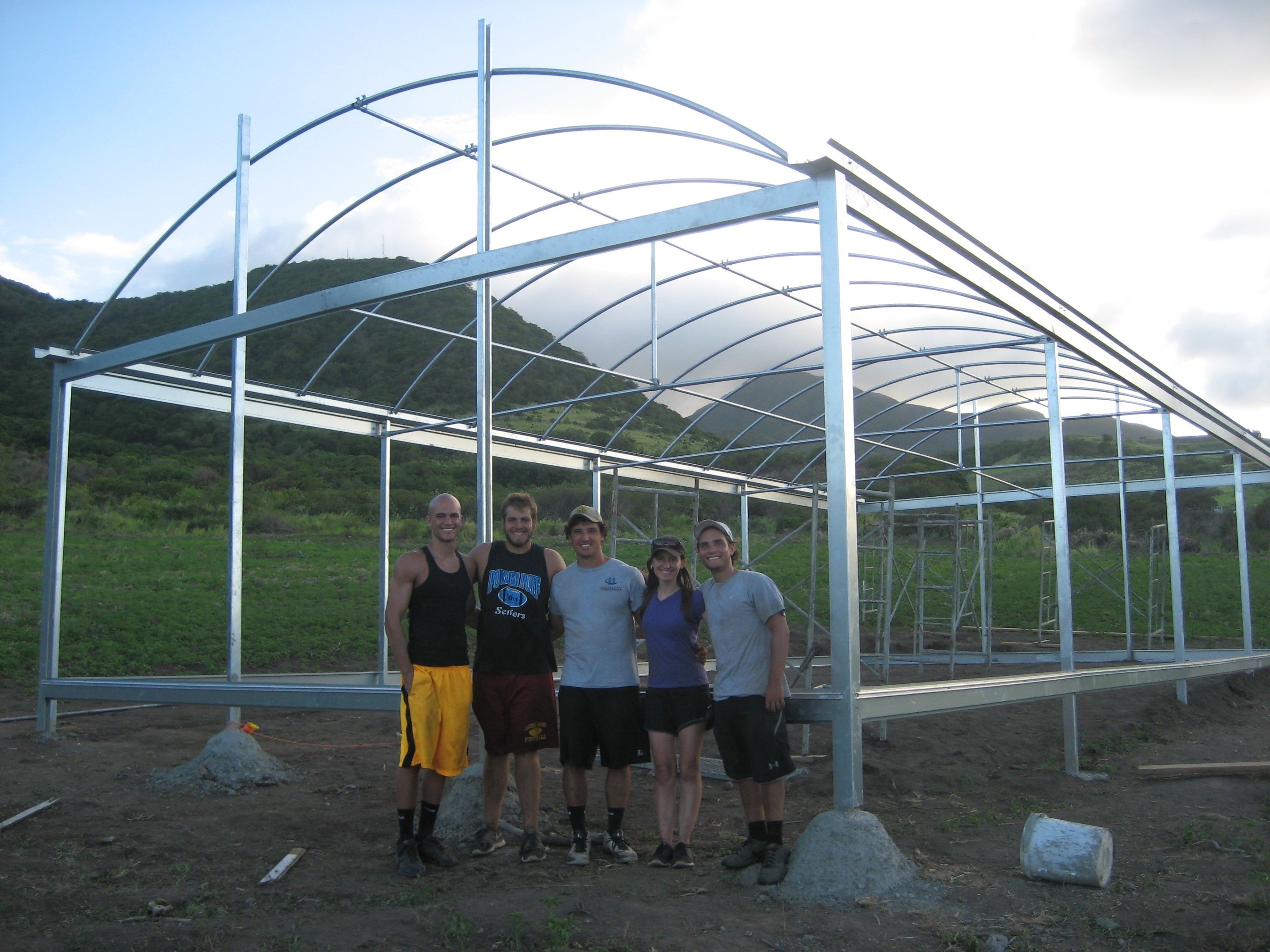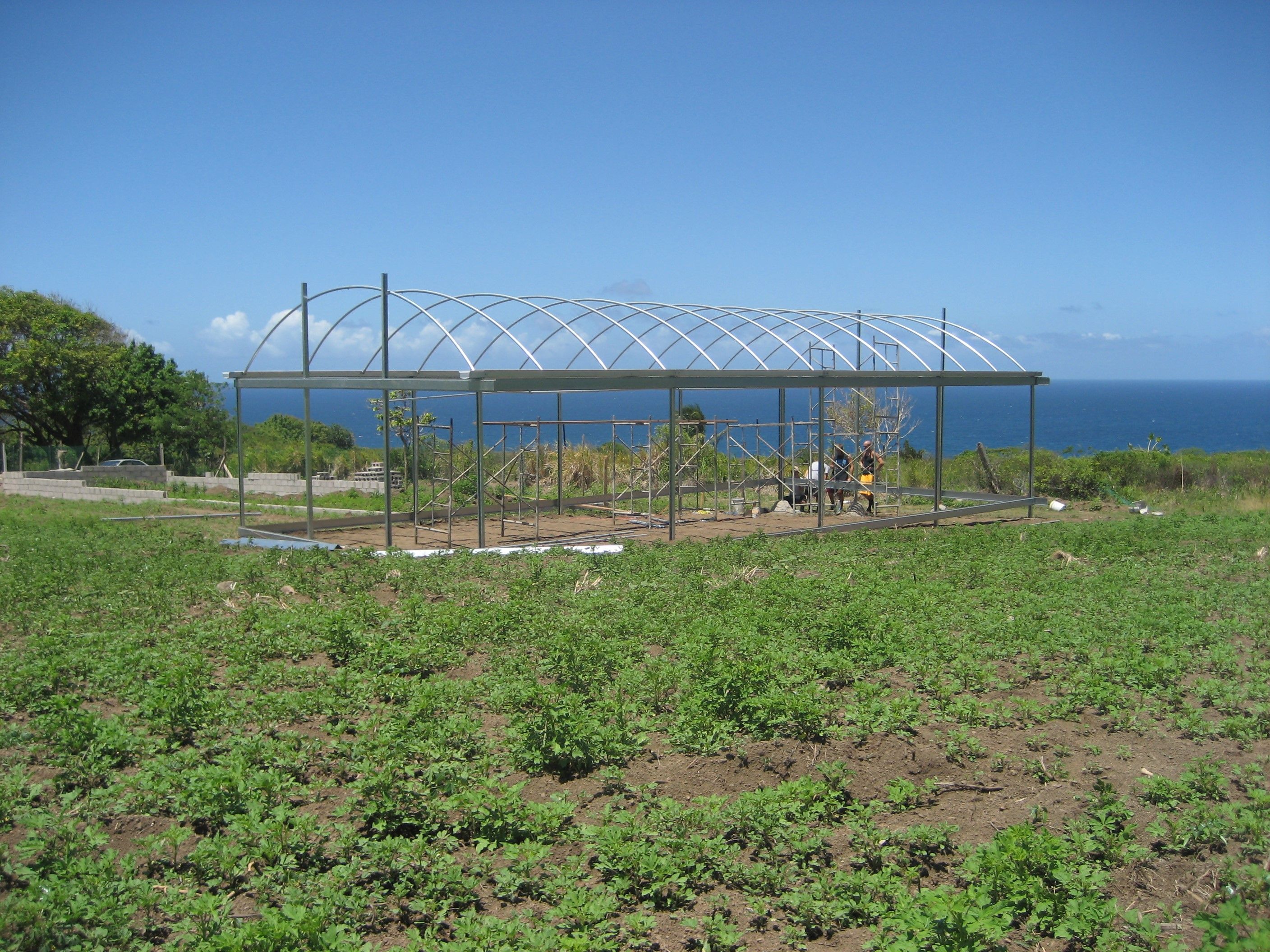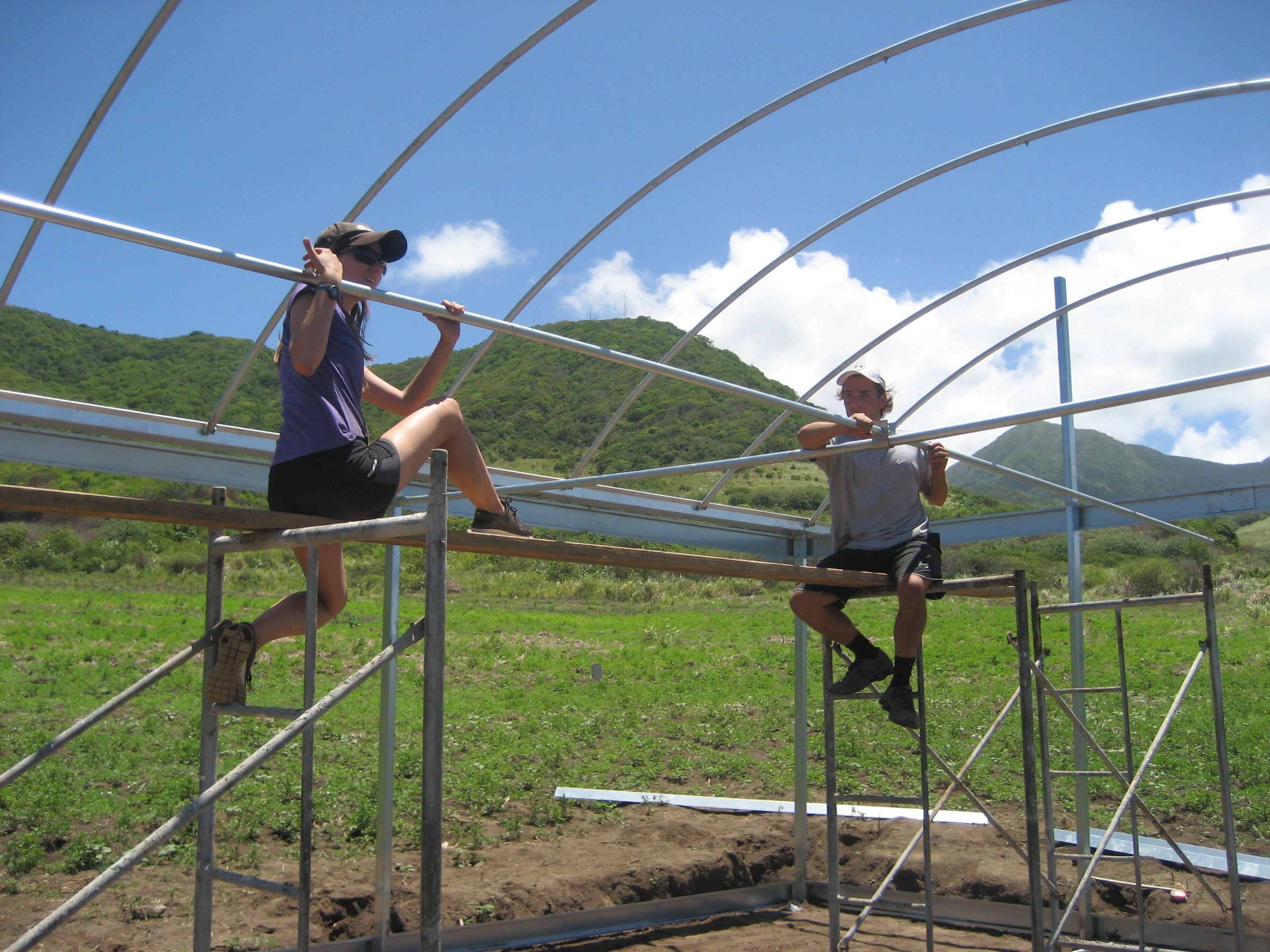
We sat down with recent graduate Lucien Charland (Iota Theta/Central Florida 2015) to follow up on a project he presented last year at the Clinton Global Initiative University Conference. The now incorporated company, Standard Hydro, has been making bold strides and has a vision to become the global leader in sustainable food production.
To the best of your ability, describe what Standard Hydro is.
Standard Hydro is a forward-looking agriculture company. We grow and sell fruits and vegetables using shade houses, feeding our plants with only sunlight, water, and basic nutrients. It's better for people and for nature, but the best part is that we can grow lots of food in very hot places that don't have a lot of water or farmland.
How did this project get started?
Standard Hydro started as a student initiative and has developed into a sustainable enterprise that hopes to play a significant role in the global agriculture and climate change industry. I came up with the idea for Standard Hydro, but have been working alongside my friend Keane Mayer, a 2014 Indiana University graduate and a member of Sigma Phi Epsilion. We decided to dedicate years of our lives to the project after we realized the huge potential to help people and to grow the business.
How did you and Keane meet initially?
I actually met him in high school through student government. We were able to pass a lot of legislation together and actually implemented change. As a result, I knew we made a good team and he was my natural first choice when Standard Hydro became a reality.
Standard Hydro is setting their roots in the island nations of St. Kitts and Nevis. Why here?
I visited these islands as a part of a service learning program at UCF and while I was there working with local agriculture students I saw an opportunity to help people get affordable produce and in the process make enough money to sustain the venture. St. Kitts is a great pilot island because they import over 70% of their produce, they are water scarce, the sun is too strong to grow certain vegetables (and restricts seasonal availability), and the market is small enough that we have a chance to make a big splash and really affect change.

The shade houses only require "15-25% of the space, and 5-10% of the water needed for traditional agriculture.” it also “cuts down the time, labor and distance required to participate in agriculture” Why isn’t everyone using these?
This is a two sided question. Hydroponics and shade houses are gaining traction with a lot of people, and quite a few businesses are picking up this type of technology for applications on small islands and desert climates like the Middle East and the western U.S. However, large traditional agricultural conglomerates maintain control of the market and low prices due to their size and government subsidies.
I’m making the assumption that the agriculture produced is free of pesticides or other unnatural additions or modifications?
Yes. We are guaranteed green and we sell 100% clean produce. We only use three things in our process, water, sunlight, and nutrients.

Standard Hydro seeks to be the “global leaders in sustainable food production”. What expansion plans, or next steps, do you and the Standard Hydro team have?
Our first step is proving the concept and demonstrating the scale of our capacity. Once we accomplish this on St. Kitts, a lot of doors open for us. Right now we are in talks about expanding to other island countries and/or water scarce areas like California and the Middle East.
Last time we spoke to you, the wheels were just starting to turn on this whole project, I don’t think your team had even arrived in Arizona for the 2014 Clinton Global Initiative University. Give us a timeline of what has happened since then.
As you know, we won a Resolution Project Grant at the 2014 Clinton Global Initiative University conference, which allowed us to build our first 24' by 48' shade house. Since then we have established a relationship with a number of local grocery stores and constructed a small cabin on the farm to house the Standard Hydro team. Behind the scenes, we have incorporated, built a website, and started putting together an advisory board. We are also nearing the end of a successful crowdfunding campaign and hope to raise enough to construct a second shade house. Finally, starting in August we will be on the islands full-time!
Why does this cause mean so much to you and your team?
It is meaningful to us because it allows us to be at the forefront of something big. To be entrepreneurs, to help people in a meaningful was, and to be part of the conversation on agriculture in the future. Moreover, we are passionate about sustainability, efficiency and nutrition.
Why should this cause mean something to others?
It should mean something to others because agricultural methods affect a lot of people and will continue to have an impact on health and quality of life around the world. We need to get smarter about how we're using water and how we produce food, and who's to say local, sustainability sourced produce won't be available to ever family in the years ahead?
How has Theta Chi helped you get to this point in your life, at such a young age?
Theta Chi didn't necessarily give me the opportunity to launch Standard Hydro, but it has been a huge help in preparing me for the journey ahead. The fraternity is obviously a great group of brothers and friends, but it also served as a training experience in terms of leadership, volunteering, and interpersonal skills. It provided an environment where I could learn the life lessons that I am taking with me to the islands. Moreover, I received two Sherwood and Janet Blue Foundation Scholarships that helped me focus on school and the company, and made it possible for me to put my dreams ahead of current needs.
Lucien moved back to St. Kitts and Nevis August 1st. Standard Hydro's Misson Statement can be read here. Feel free to check out their website, http://www.standardhydro.us/, and GoFundMe page as well, for more information.



